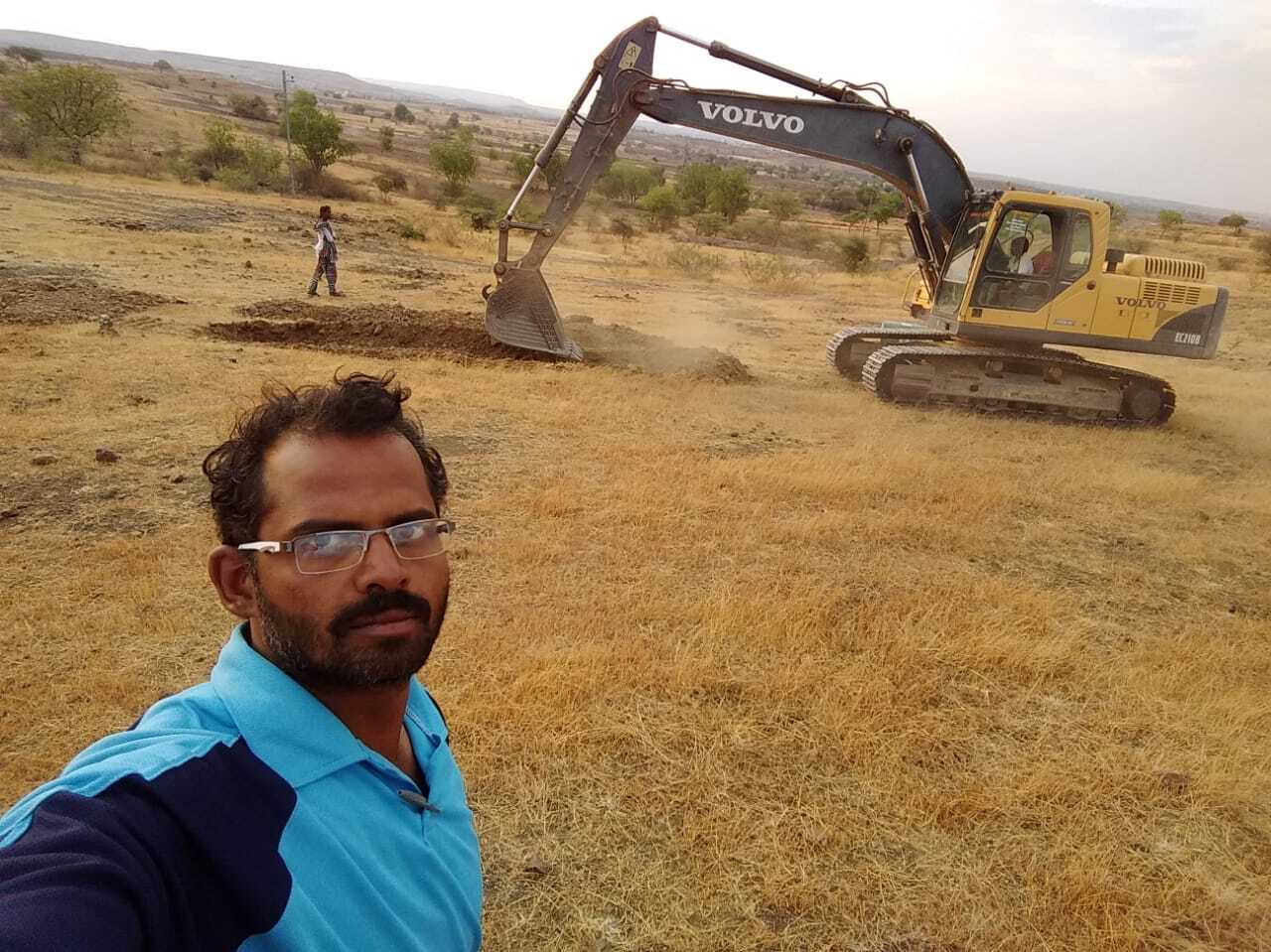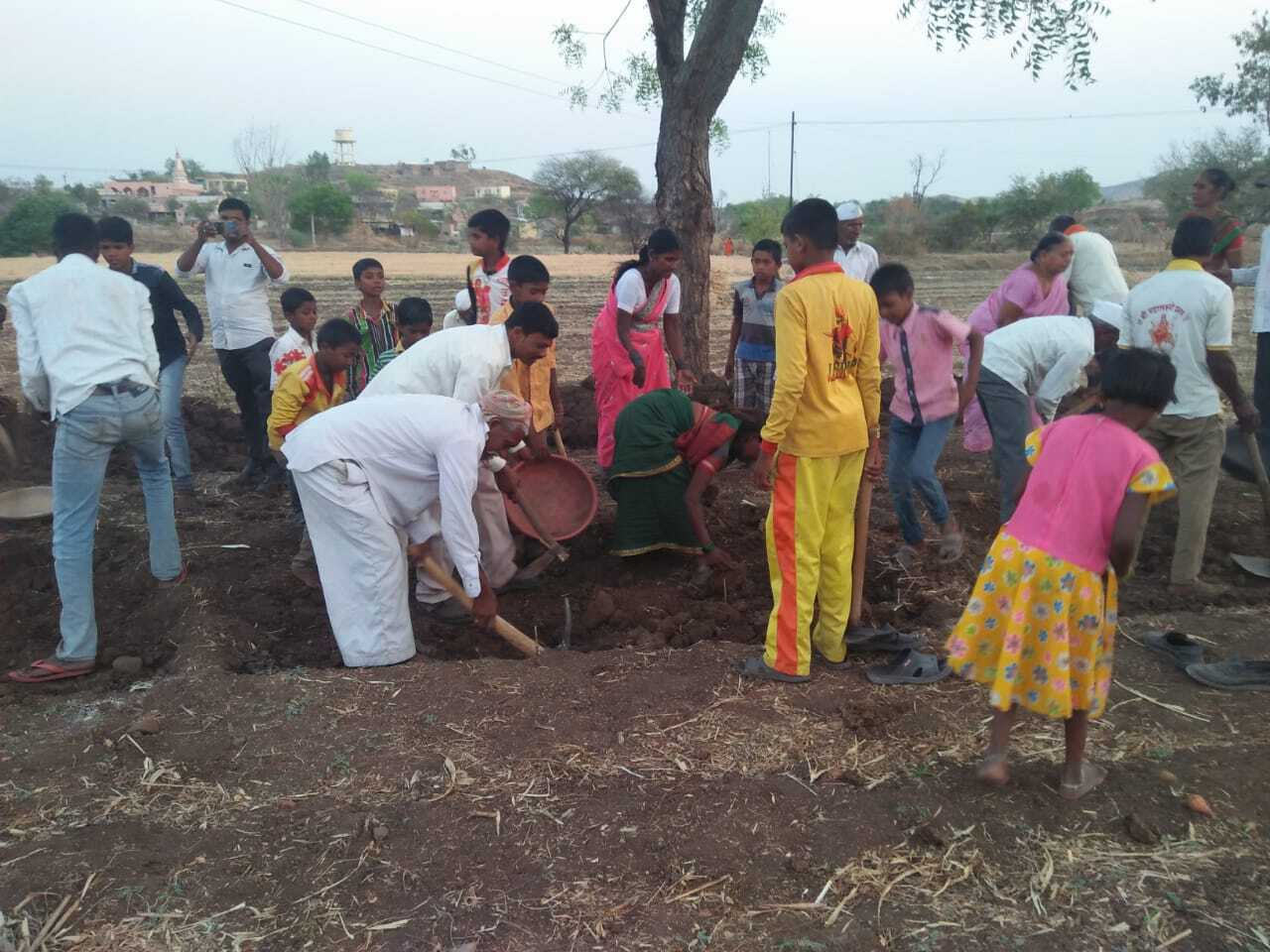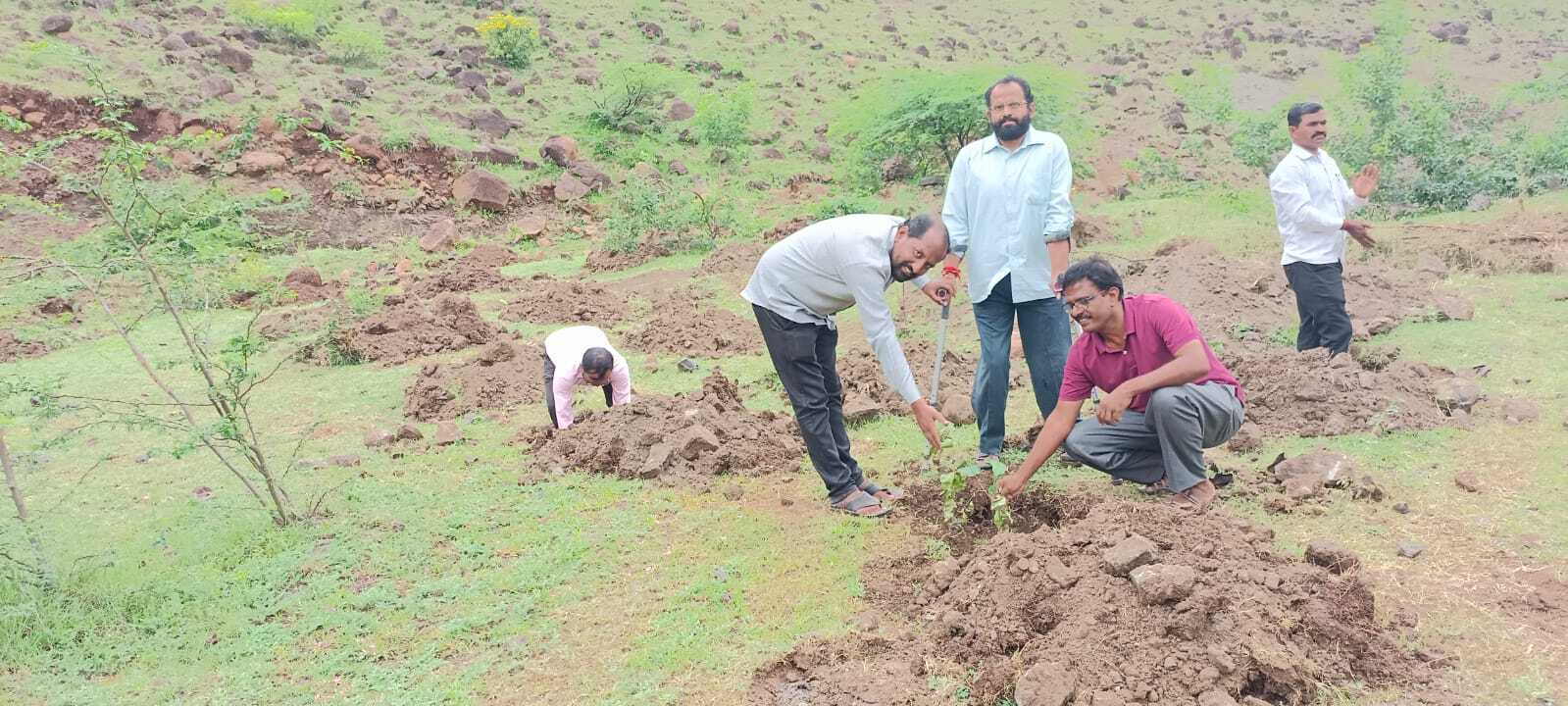“True strength isn’t about physical ability, but the will to keep moving forward, no matter the difficulty.”
Polio, a cruel disease, robbed Abhay Todkar of the ability to walk freely. But it couldn’t steal his spirit. Born in Dahiwadi, Satara District, Maharashtra, this 44-year-old has defied adversity and emerged as a beacon of hope for his community.
Today, Abhay is a living embodiment of hope and transformation. His work not only highlights the power of tenacity but also proves that no matter the odds, a steadfast heart and belief in oneself can turn even the greatest obstacles into stepping stones for change.
Growing up in rural India, where physical prowess is often celebrated, Abhay faced a double challenge. Polio left him with a weakened body, making everyday tasks more difficult. Yet, instead of succumbing to adversity, Abhay ignited a fierce determination within him — a determination that would bring water to drought-prone villages in the arid Satara district.
“I wanted to live a normal life,” he tells The Better India. “I never let polio define me. I gave 100% in everything I did, whether it was sports or life. My mindset was always positive, and with my family’s support, I pushed beyond my limits. It’s not about the challenges you face, but the effort you put in.”
A business, a realisation, and finding purpose
At the age of 20, Abhay started working in an STD booth business that his father had set up for him. Although the business provided Abhay with valuable lessons in entrepreneurship, it did not yield immediate financial success. Despite his determination, a sense of frustration persisted, as his aspirations extended far beyond the small business he was managing. His desire for a greater purpose continued to grow, and it was only when life took an unexpected turn that he discovered his true calling.
Abhay had always dreamt of shaping young minds, earning a diploma in education to become a primary school teacher. However, a sudden court ruling halted teacher appointments, abruptly derailing his plans. Undeterred by this setback, he pivoted his aspirations and ventured into the world of wholesale business. His journey began with long, arduous travels to nearby villages around Dahiwadi, relying on state transport buses to navigate the winding roads.

“I would carry bags of goods on my head and sell them to local vendors. I also built various connections across the region,” he recalls. Although the financial rewards were modest, Abhay’s determination kept him going. “My parents and wife believed in me, even when I had little to offer,” he says. Their support became his anchor, helping him stay focused on his larger aspirations.
The turning point in Abhay’s life came when he saw an advertisement in the newspaper for an LPG agency with Hindustan Petroleum. He decided to apply, and to his surprise, his name was selected in a lucky draw, giving him the opportunity to run his own gas agency.
“I was overjoyed when I saw my name, but little did I know that this success would bring its own set of obstacles,” Abhay says.
The pressure of managing the growing business began to take a toll on his health, and he found himself in constant conflict with customers and even his family. “I was so focused on the business that I lost sight of what truly mattered. I felt like I was only chasing after money,” he admits. It was during this difficult period that Abhay had a realisation that true success wasn’t just about business achievements, it was about living a life with purpose.
In 2012, he enrolled in the Sudarshan Kriya programme under ‘Art of Living’. This decision marked the second major turning point in his life. “The Sudarshan Kriya programme changed everything,” Abhay reflects. “It helped me let go of stress and gave me a sense of calm that I had never experienced before.” Through the programme, he learnt the power of a positive mindset, an invaluable tool that would not only improve his mental well-being but also positively impact his personal and professional life.
Suddenly, Abhay saw life through a new lens. His business was no longer the centre of his world. He began to understand that success was not measured by financial wealth, but by how much good one could do for others. This mindset shift led him to engage more deeply in social work. His belief that “service to mankind is service to God” became the foundation of his community initiatives. Abhay soon began organising cleanliness drives (Swachhata Abhiyaan) in his village, Dahiwadi, and realised that he could create lasting change through community involvement.
Bringing water to drought-prone villages
Having grown up in a region plagued by recurring droughts, Abhay had firsthand experience of the immense hardship faced by his community in securing water. The constant reliance on expensive water tankers was a stark reality, highlighting the urgent need for sustainable solutions. Driven by a desire to alleviate this suffering, Abhay embarked on an ambitious mission to address the pressing issue of water scarcity in Dahiwadi and its surrounding areas.

“We live in a drought-affected area where rainfall is minimal,” he says. “Water scarcity has always been an issue, but I realised we had to find a sustainable solution.”
His vision for water conservation began with creating a structure that would not only store water but also reduce dependence on external sources. In 2015-16, he spearheaded the creation of one of the largest people-made dams on the Manganga River in Dahiwadi. The project marked a significant milestone for the community, which came together, inspired by Abhay’s vision.
The success of this project was transformative. The tanker trucks, which had once been a regular sight in Dahiwadi, no longer needed to deliver water. The community now had access to a reliable water source. “We saved crores of rupees by eliminating the cost of buying water,” Abhay says. “The dam gave us the ability to survive even if there were years without rainfall.”
Abhay’s success in Dahiwadi became the spark that fuelled a larger movement. Motivated by the positive impact his village had experienced, Abhay expanded his efforts to other villages in the region. From 2018 to 2024, he and his team from ‘Art of Living’ reached 64 villages, focusing on water conservation initiatives, organic farming, and youth leadership development. Collaborating with organisations like the ‘Paani Foundation’, which was founded by Bollywood actor Aamir Khan, his vision continued to grow.
Abhay tried a variety of innovative methods to conserve water across the villages apart from building dams. “We organised competitions between the older and younger generations to see who could budget water more effectively. Alongside this, I taught people the importance of tree plantation. By planting more trees, we ensured that water was stored underground, which helped maintain a supply even during droughts. Trees play a crucial role in absorbing and conserving water, offering a lifeline in dry seasons by using moisture efficiently and sustaining the land and the community. In the last five years, we have planted approximately 1,27,000 trees,” he says.

Many villages were initially sceptical about the idea of water conservation, uncertain if the methods would work in their own communities. To earn their trust, Abhay chose to lead by example. “I knew the best way to convince them was to show them the results in Dahiwadi,” he says. “I invited them to visit, let them see the impact for themselves, and allowed the work to speak.” Abhay was able to turn scepticism into belief, gradually inspiring others to join his cause.
One of the most remarkable success stories came from the village of Pingali-Kd, located just five kilometres from Dahiwadi. Initially, the village showed little interest in Abhay’s water conservation efforts. “At first, only 8-10 people were interested,” Abhay recalls. But instead of giving up, Abhay invited 25 children with disabilities to participate in rallies, focusing on Shramdaan (labour donation). These rallies soon captured the attention of the entire village.
One of the villagers, Sujata Waghmare, admits, “When Abhay ji first introduced the water conservation project in our village, I wasn’t really interested. But when he asked me to attend the training, I decided to give it a try. The training was so impactful that I immediately realised I wanted to be part of this cause.”
“Abhay ji brought so much energy and enthusiasm to the project that it felt like it was his village. His passion motivated me to get actively involved, attending meetings and joining the projects. I also encouraged others to take part so they could understand the importance of water conservation. What amazed me most was that even though Abhay sir is physically disabled, his drive to work is beyond inspiring,” she adds.
As more villagers became engaged, Pingali-Kd raised the necessary funds to build dams. Within a short time, the village overcame its water scarcity issues, and even began supplying water to neighbouring villages.
Bapu Kambale from Pingali-Kd shares, “I am a mechanic, and I know Abhay ji through Art of Living. Water conservation has always been close to my heart, as we’ve seen the devastating effects of drought. There was a time when we had to walk up to seven kilometres just to fetch water. Our wells were dry, and finding drinking water was a constant struggle. With such a shortage, we couldn’t even think of farming.”
“When Abhay ji began his work on water conservation in our village, I joined him. We built dams, and Abhay ji took the lead in raising funds. He stayed in our village for nearly 40 days, overseeing the progress and ensuring everything was done properly,” he says with deep appreciation.
From a boy diagnosed with polio to a man leading a movement for water conservation across villages, Abhay Todkar’s journey is a source of hope for others facing similar challenges. His story proves that no limitation can hold back the human spirit when fuelled by grit and a passion for serving others.
Edited by Arunava Banerjee; All photos courtesy Abhay Todkar

No comments:
Post a Comment